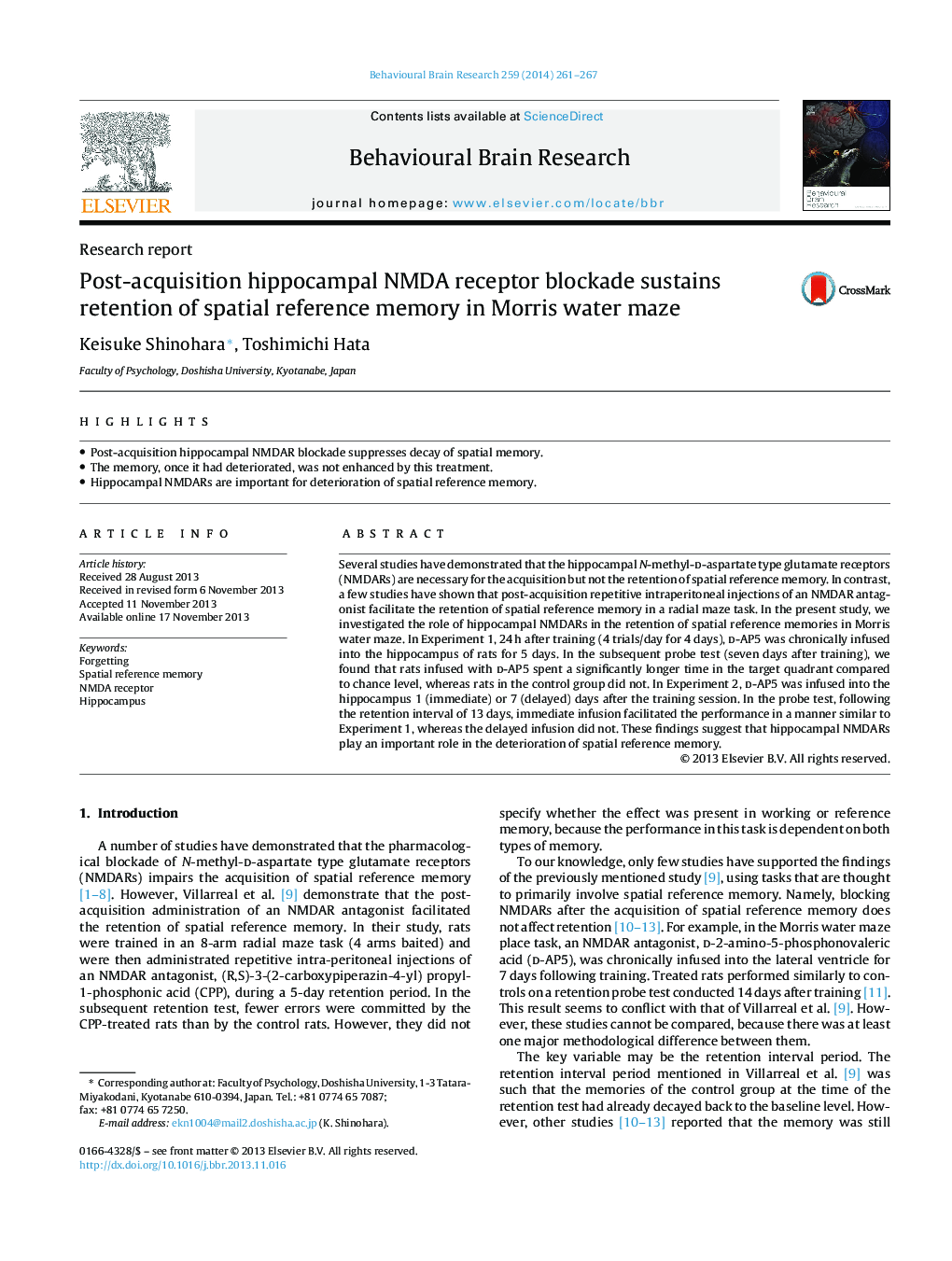| Article ID | Journal | Published Year | Pages | File Type |
|---|---|---|---|---|
| 6258585 | Behavioural Brain Research | 2014 | 7 Pages |
â¢Post-acquisition hippocampal NMDAR blockade suppresses decay of spatial memory.â¢The memory, once it had deteriorated, was not enhanced by this treatment.â¢Hippocampal NMDARs are important for deterioration of spatial reference memory.
Several studies have demonstrated that the hippocampal N-methyl-d-aspartate type glutamate receptors (NMDARs) are necessary for the acquisition but not the retention of spatial reference memory. In contrast, a few studies have shown that post-acquisition repetitive intraperitoneal injections of an NMDAR antagonist facilitate the retention of spatial reference memory in a radial maze task. In the present study, we investigated the role of hippocampal NMDARs in the retention of spatial reference memories in Morris water maze. In Experiment 1, 24Â h after training (4 trials/day for 4 days), d-AP5 was chronically infused into the hippocampus of rats for 5 days. In the subsequent probe test (seven days after training), we found that rats infused with d-AP5 spent a significantly longer time in the target quadrant compared to chance level, whereas rats in the control group did not. In Experiment 2, d-AP5 was infused into the hippocampus 1 (immediate) or 7 (delayed) days after the training session. In the probe test, following the retention interval of 13 days, immediate infusion facilitated the performance in a manner similar to Experiment 1, whereas the delayed infusion did not. These findings suggest that hippocampal NMDARs play an important role in the deterioration of spatial reference memory.
